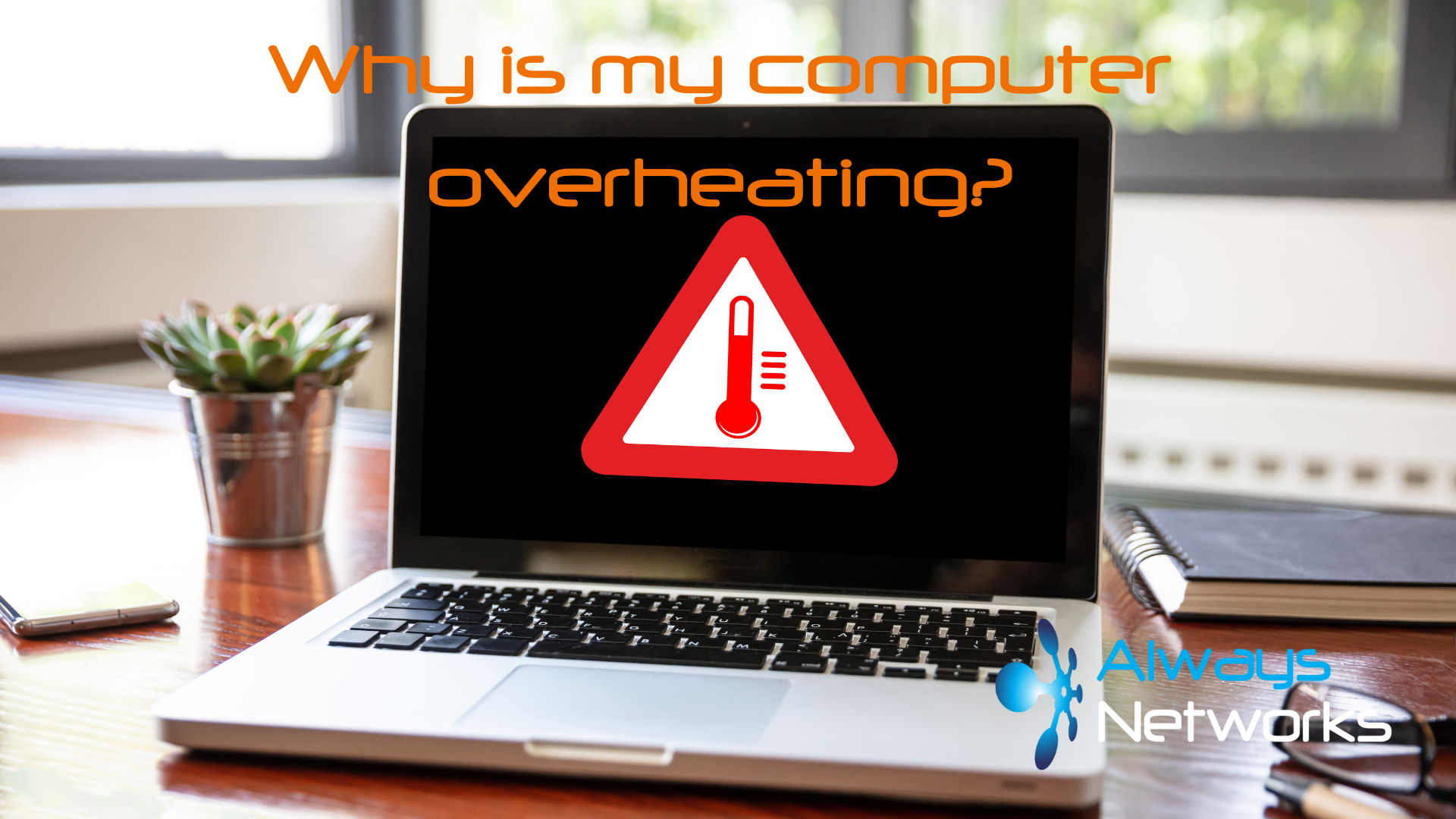If your computer is overheating and causing you problems, you’re not alone. Many people face this issue, and it can be frustrating and worrying. But the good news is that in most cases, overheating can be fixed with a few simple steps. In this blog post, we’ll cover the most common reasons your computer might be overheating and what you can do about it.
1. Blocked or Dirty Fans
Your computer relies on fans to keep it cool. Over time, dust and debris can block these fans, making it harder for air to flow. Without proper airflow, the heat builds up inside the machine. Check the vents and clean them out if you see dust piling up.
How to fix it:
Use a can of compressed air to blow out any dust from your computer’s vents, fans, and other openings. Be gentle to avoid damaging any internal parts.
2. Poor Ventilation
Where you place your computer matters. If it’s on a soft surface like a bed or sofa, the fans can’t pull in enough air to cool the system. Similarly, placing the computer in a cramped space, like a small desk nook or against a wall, can block airflow.
How to fix it:
Make sure your computer is on a hard, flat surface, preferably one designed to help with ventilation, like a laptop cooling pad. Keep it in a well-ventilated area with plenty of space around it.
3. High Usage and Demanding Programs
Sometimes, it’s not the environment that’s the problem—it’s the workload. Running resource-heavy programs like video editing software, high-end games, or multiple applications at once can push your computer to its limits. When your system works harder, it generates more heat.
How to fix it:
Close any unnecessary applications and take breaks if you’re doing intensive tasks. If you regularly use resource-hungry software, consider upgrading your computer’s components to handle the extra load.
4. Outdated Hardware
As technology advances, software becomes more demanding. If your computer is a few years old, its hardware might be struggling to keep up, which can cause it to overheat. Older processors, hard drives, and cooling systems may not be efficient enough to run modern applications smoothly.
How to fix it:
Consider upgrading key components like your CPU, RAM, or graphics card. If upgrading isn’t an option, you may want to explore ways to reduce the workload on your machine by optimising settings or limiting multitasking.
5. Malware and Viruses
Sometimes, overheating can be caused by malicious software running in the background. Malware and viruses often run without your knowledge, using up processing power and causing your computer to overheat.
How to fix it:
Run a full virus scan with a trusted antivirus programme and remove any threats. Keeping your software up to date can also help prevent malware from getting into your system in the first place.
6. Faulty Hardware
If you’ve ruled out dust, poor ventilation, and high usage, it’s possible that a component inside your computer is faulty. A damaged fan, power supply, or even a worn-out thermal paste could be causing the system to overheat.
How to fix it:
If you suspect hardware issues, it’s best to contact an IT professional. They can diagnose the problem and replace any faulty parts, ensuring your computer stays cool and runs smoothly.
Don’t Let Overheating Damage Your Computer
Overheating isn’t just inconvenient – it can cause long-term damage to your computer’s hardware. By addressing the issue quickly, you can prevent breakdowns and extend the life of your machine.
If you’re not sure what’s causing the problem, book a 15 minute call with Nick:




